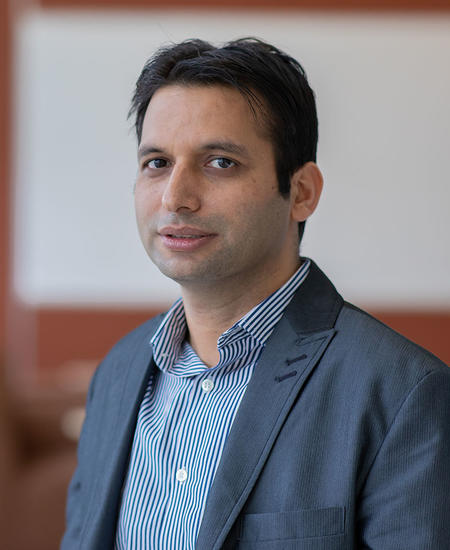Assistant professor Himanshu Thapliyal and master's student Zach Kahleifeh, both in the University of Kentucky Department of Electrical and Computer Engineering, have received a second-place award in the IEEE 6th World Forum on Internet of Things Best Paper Competition. The conference received 285 papers from 44 countries.
Thapliyal and Kahleifeh will receive a plaque from the IEEE IoT Initiative and the WF-IoT2020 Technical Program Committee, as well as complimentary registration for WF-IoT 2021.
The paper, titled “2-Phase Energy-Efficient Secure Positive Feedback Adiabatic Logic for CPA-Resistant IoT Devices,” reflects research supported by the NSF CAREER Award Thapliyal received in 2019.
"I am pleased that our research at UK on hardware-assisted cybersecurity of IoT devices is being recognized on a global platform," said Thapliyal.
Due to COVID-19, the World Forum on Internet of Things, originally scheduled to take place in New Orleans, Louisiana, occurred online.
The abstract of the paper is below.
“Internet of Things (IoT) devices include smart home applications, medical devices, smart vehicles, and various everyday cyber systems that are connected and exchange data. The design challenge for IoT devices is to provide low-energy, lightweight, and secure devices, which are also resistant to cyber attacks that use power consumption to extract private or sensitive information. The research uses the principles of “energy recovery computing” or "adiabatic computing" to lower the energy consumption in IoT devices and increase their resistance to cyber attacks. We explore 2-phase sinusoidal waves in adiabatic computing to develop low-power and secure IoT devices. We illustrate an average energy saving of 50% of the proposed adiabatic logic style compared to the standard CMOS (Complementary metal–oxide–semiconductor). Furthermore, we illustrate that the proposed approach is resistant to malicious attacks that use power consumption traces to extract private or sensitive information. Outcomes and results should make a strong case for industry adoption of adiabatic computing for the design of low-energy and secure IoT devices. The research is supported through National Science Foundation (NSF) Faculty Early Career Development (CAREER) Award for Dr. Thapliyal's project titled, “CAREER: Utilizing Principles of Energy Recovery Computing for Low-Energy and DPA-Resistant IoT Devices.”
